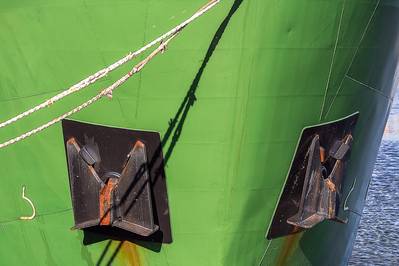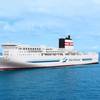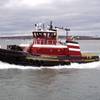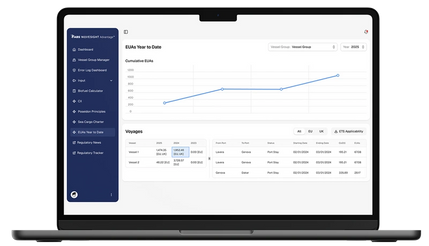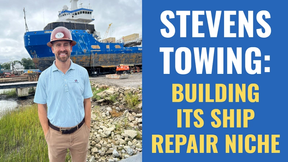LNG: Greenwashing or Realism
The October delay at IMO of its Net Zero Framework continues to spark debate, and enthusiasm, about net zero fuel choices, including what LNG’s role should be.
Debate is expected to continue too, as shipowners face a more complicated regulatory landscape now. Despite the uncertainty created by the delay, regulations continue to force emissions reductions, including existing IMO regulations such as CII and regional regulation such as FuelEU.
With the number of dual-fuel LNG ships being ordered higher than methanol or ammonia alternatives, interest in the pathway from fossil LNG to biomethane and e-LNG is growing.
However, Emma Fenton, Senior Director of Climate Diplomacy at the NGO Opportunity Green, believes that LNG stalls shipping’s clean energy transition. “Methane is a potent GHG with climate impacts over 80 times those of CO2 over a 20-year period, and burning LNG on ships results in significant amounts of unburned methane being released into the atmosphere.
“This means that any moderate CO2 emissions savings from LNG are likely offset by methane slippage at the point of combustion and leakage across the supply chain. The use of LNG therefore has serious and adverse effects for the climate, potentially outweighing those of conventional fuel oils.
“For this reason, LNG should have a very limited role in the marine transition, and it is therefore likely that investments in LNG infrastructure will lead to stranded assets and sunk costs.”
In contrast, Steve Esau COO of SEA-LNG, says the role of LNG remains the only practical and realistic future fuel available at scale, which reduces both GHG and local air pollution from deep-sea shipping.
“The methane decarbonization pathway through liquefied biomethane and e-methane is the most viable and low risk pathway for the global maritime industry, as demonstrated by the rapid growth in the LNG dual-fuel fleet and new build orderbook. With industry initiatives dramatically reducing levels of methane emissions onboard and in fuel supply chains, the growing availability of biomethane and gradual introduction of e-methane in the coming years, the pathway will continue to deliver meaningful reductions of greenhouse gases and local emissions to the citizens of the world.”
Caspar Gooren, Commercial Director Renewable Fuels, Titan Clean Fuels, points out that details such as fuel default emissions factors are still to be decided at the IMO. “Looking beyond hypothetical scenarios, what we can say is LNG offers immediate emissions reductions and a realistic pathway via liquefied biomethane and then e-methane. It is vital that all regulations create a level playing field for alternative fuel pathways and that LNG is fairly represented.
“In fact, a recent report by Rystad Energy commissioned by SEA-LNG using actual certified emissions from LNG marine fuel supply chains found that the 2024 average global well-to-tank emissions intensity was 13.9g CO2e/MJ (LHV) – lower than the FuelEU Maritime well-to-tank default of 18.5 gCO2e/MJ.”
Regardless of the postponement, those following the LNG pathway will still make progress. “LNG supply chains and engine technologies are increasingly robust and established, reducing the fuel’s well-to-wake emissions. Meanwhile, biomethane continues to prove itself as the only readily available and competitively priced green marine fuel,” says Gooren.
Development of alternatives continues. For Madadh MacLaine Secretary-General Zero Emissions Ship Technology Association, the IMO delay has created uncertainty on process but not on direction. “Across the sector, projects are moving ahead: wind-assisted vessels under sail, hydrogen and battery systems ramping up in number and size, while serious capital is piling into clean tech and maritime infrastructure. What remains in question is not whether transition will happen, but how we ensure it is real: science-based, verifiable, and free from creative accounting.”
Joe Bettles, Climate Policy & Analysis Manager, at the Maersk McInney Centre for Zero Carbon Shipping, sums up the situation for shipowners: “There was strong support for the IMO Net Zero Framework from industry organizations who represent a significant share of the world’s shipowners and operators. These organizations want clarity and certainty. They want to see one set of global rules to be able to make business decisions. Many of those decisions are now on pause, waiting for the outcome of next year’s meeting.”
Clarksons Research says it expects new vessel order growth to slow and conventional designs to regain favor.




